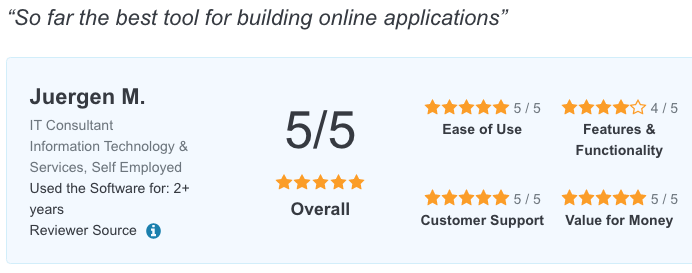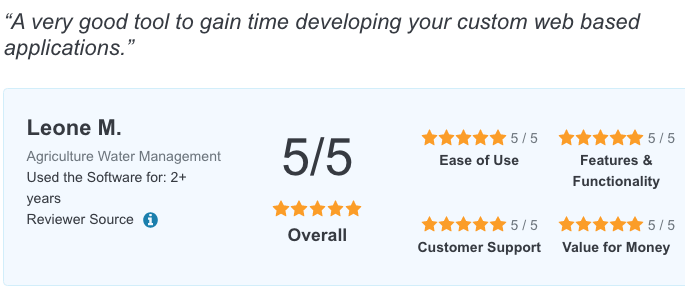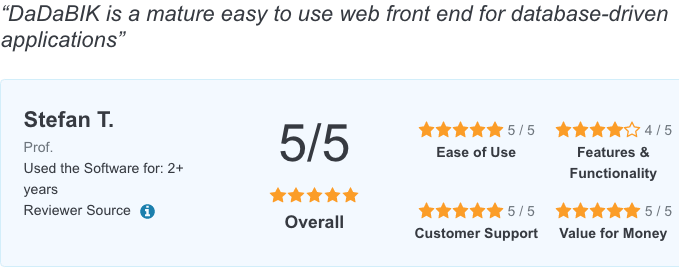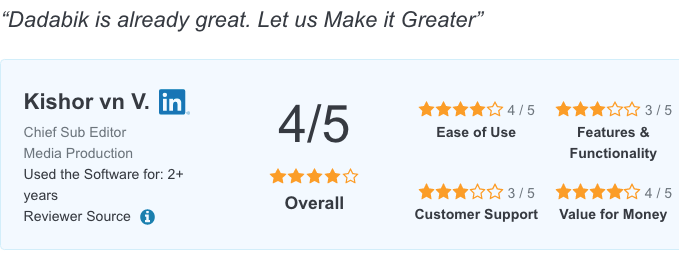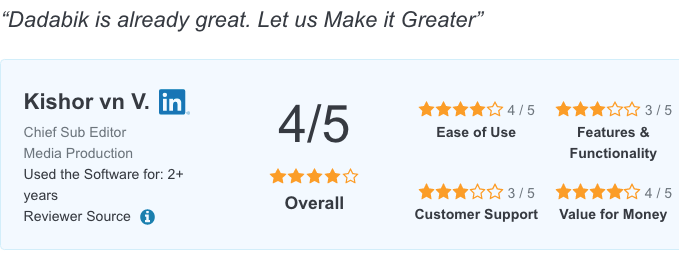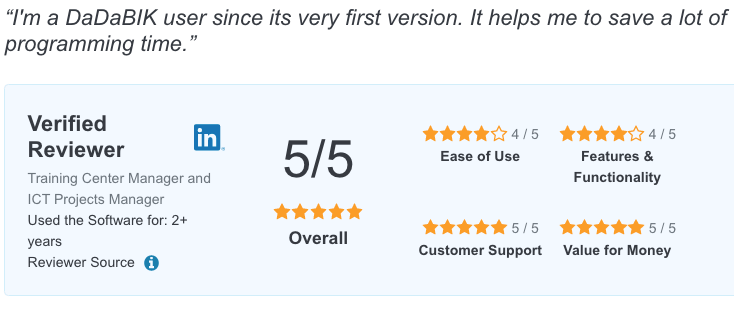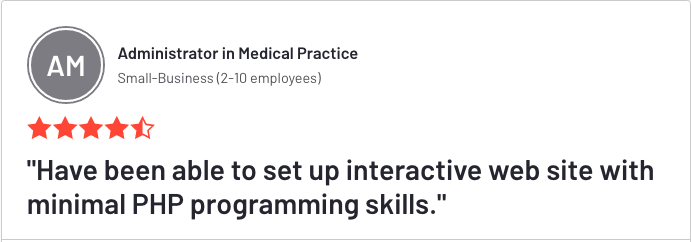DaDaBIK as a low-code / no-code platform
A low-code database platform lets you build apps on top of your SQL data without heavy coding. With DaDaBIK, you can quickly create not only CRUDs but also complex applications, workflows, automations for MySQL, PostgreSQL, MS SQL Server and SQLite. The applications you build are secure, enterprise-ready and, unlike cloud-only tools, self-hosted.
A no-code low-code platform allows you to build such applications using a graphical interface (instead of coding it using a programming language), even if you don't have coding skills (no-code); you can start from scratch, from an existing DB or from an Excel file: you will generate a basic Web data-entry application in minutes and then you can customize it with very little no-code effort.
If, instead, you do have programming skills (SQL, PHP, Javascript) you can also add some code to customize even more the application created ( that's why low-code). For example you can add custom formatting functions, custom validation functions or - through DaDaBIK hooks - add more sophisticated application logic to be executed when a certain even occurs, e.g. when the user clicks a button or when a new record is inserted in a particular table.
Let me give you an example to clarify the difference between a simple database frontend and a more complex (data-based) Web application. Let's say you have a table orders where you store the orders received from your customers. A simple database front-end allows you to interact with this table, for example adding new orders with all the details (customer, products, quantity, ...). But this might not be enough.
Implementing complex workflows
Entering a new order is an event that, in your organization, produces several effects, and you want to automate those effects in your application, a few examples:
- You want to automatically update the quantity of product available in the warehouse
- If the quantity in the warehouse falls under a certain threshold, you want to automatically send an order to your supplier
- You want to automatically produce a PDF order receipt and send it as a confirmation to your customer
Video 1: A sales management / CRM app created with DaDaBIK
The Low-code step
As you can see, you might need more than a simple front-end. Can you really implement these complex business rules without ANY coding? It depends. There are simple actions that don't require any coding, for example you can set DaDaBIK to send an email to a specific receipient when a new order is registered. However, for complex business rules, most of the time you have to write SOME code, this is what we call low-code app development.
But there are two good news:
- As I said, it's SOME code, you really only need to write the code for those rules you want to implement, but most of your application is built automaticaly.
- Some low-code platforms require you to learn a specific, propretary, language. This is not the case for DaDaBIK: you are going to use standard SQL, PHP and Javascript; you are probably already familiar with them, being among the most popular languages available. If you are not, learning some SQL or PHP or Javascript is a better investment than learning some propretary language that you can use only with one platform.
How can I inject my code into a DaDaBIK application? Do I have to modify the DaDaBIK code?
No, your code is completely separated from the DaDaBIK core code. You will write your code in specific files and there are at least five ways you can inject it:
- Hooks: your code will be executed when a particular event occurs (e.g. when a record is inserted in a particular table).
- Custom buttons: your code will be executed when the user clicks on a button
- Javascript events: your code will be execute when a javascript event (e.g. onchange) happens on a particular form field
- Custom validation, formatting and conditional field functions
- Calculated field functions
Low-code examples
If you are still skeptical and want to see some applications created with a low-code approach, check our Demo page; in particular Demo n.1 (Sales management / CRM application) and Demo n.3 (ERP application) are both build with a little amount of code.
Want to know what users say about DaDaBIK? Check the reviews
Questions about low-code app development or about DaDaBIK in general? Contact us, and we'll be in touch.
